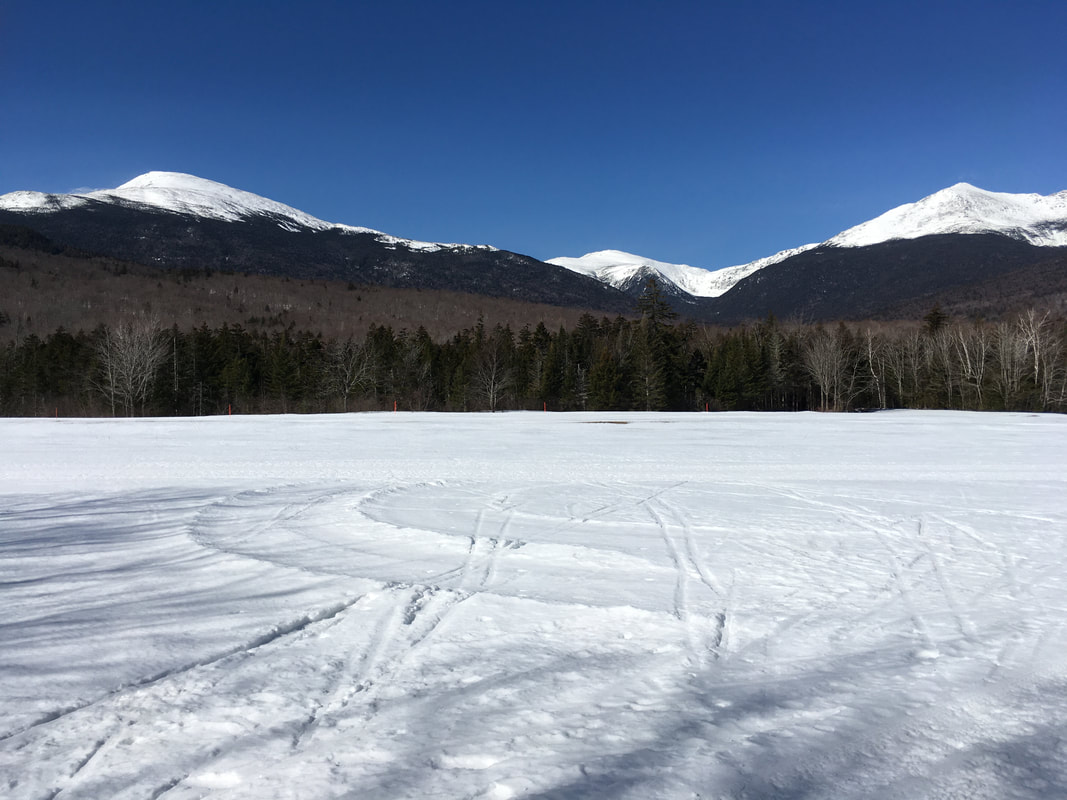We are in a recession, with millions of people in the U.S. out of work and millions of students and pre-schoolers home from school and day care. And half to two-thirds of the entire population could be infected with the virus, and at the high end, millions could die. Things I did just a week ago – like drive with other elders to a cross-country ski weekend in New Hampshire (Mt. Washington pictured above) and sleep in a small dorm room with three other women, and go to my gym classes – now seem unthinkable. Everything is shutting down, except grocery stores and pharmacies. Stop & Shop just announced a special seniors-only shopping time from 6-7:30 a.m.
The roll-out of testing (or lack thereof) is a huge debacle, which has set the pandemic on its course. Mayors and governors are providing leadership, and Trump has finally seemed to have gotten religion about the seriousness of the virus after dismissing it for weeks.
But here are some good things about this weird time:
Much lower traffic is reducing air pollution and the amount of greenhouse gases produced, and making it much more pleasant to bike;
Using Zoom for meetings will probably carry over to some degree when the crisis passes, saving time and more pollution from those who normally drive to meetings;
Having more exclusive family time could strengthen bonds (if it doesn’t drive everyone crazy);
Since being outside alone or with others while maintaining social distance (6 feet) is one of the safest things we can do, more people are doing it (bike ridership has spiked in New York City as people avoid riding the subway); the parks are open (so far) and you can always just walk around the block. I saw way more people in my neighborhood than usual as I did my daily walking meditation today;
And finally, while these disasters bring out the worst in some people, they definitely bring out the best in more. Folks are checking in on neighbors, running errands, signing up for pop-up mutual aid list-serves, and more.
Cancelling in-person events – like the four planned in Connecticut April 22-25 for Earth Week – is pushing us to think outside the box to come up with on-line and phone-in events to create the kind of buzz we need to move forward on the climate crisis.
Although there’s no proof that Covid-19 is tied to climate change (since it’s been traced to bats in a wild animal market in China, since closed down), there is research showing there may be a connection of climate change to future pandemics, as the warming planet has pushed some animal species into closer contact with humans, as both have to navigate an Earth that has become less habitable, and a growing number of diseases are caused by an animal-human connection.
Here’s a story about more possible connections, summed up:
“The parallels between the coronavirus outbreak and climate change, and our collective global and U.S. handling of it, are striking. There are four ways these two threats resemble one another frighteningly closely. And these similarities ought to give us all pause and motivate us to redouble our efforts to address the urgency of the looming climate crisis.
First, both COVID-19 and the effects of climate change will impact not only our health but also our economic prosperity and our way of life — everywhere. And the people who will suffer the most are the ones who are already vulnerable and who need our help the most.
Second, the signs are all bad and getting worse — fast.
Third, the longer we wait to take action the worse the threat will become and the less we can do to stop it.
Fourth, only global collective action will suffice. And we are all in this together — everyone on the planet.”
I’m hoping some of these sudden and extreme behavior changes will outlast – in some form – the pandemic, and set us on the road to a healthier planet and healthier people.

 RSS Feed
RSS Feed
